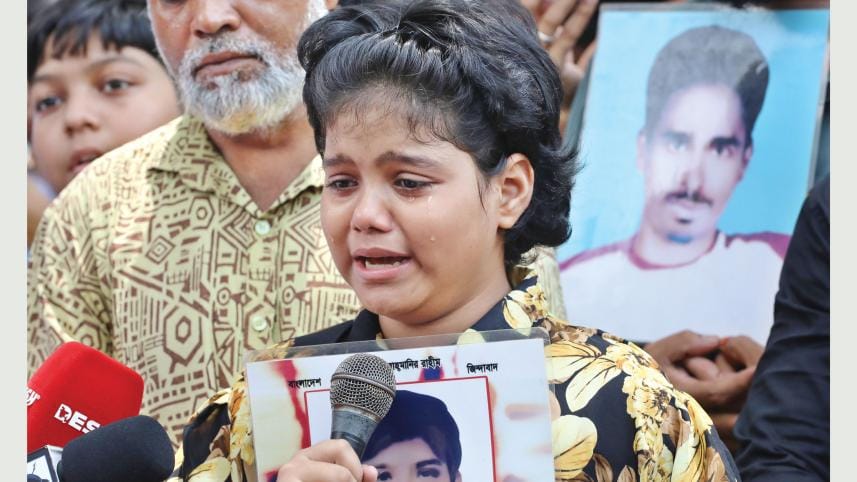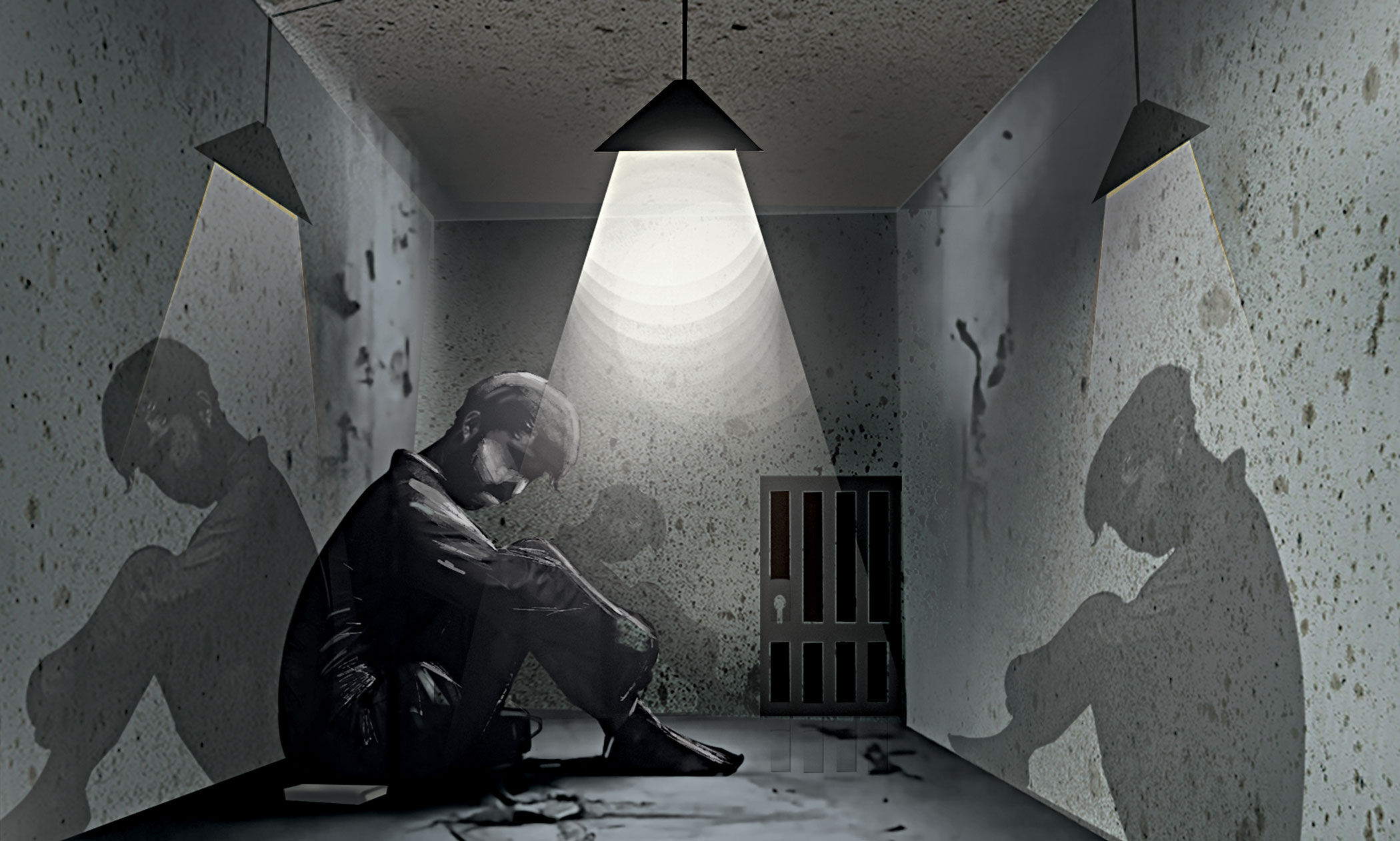Where are our loved ones?

Ayesha Ali has been praying every day for over 10 years to see her son.
As several people emerged from secret detention centres known as Aynaghar after the fall of the Sheikh Hasina-led government early this month, Ayesha started hoping that her son Abdul Quader, who was 23 when he disappeared in December 2013, would knock on the door any moment.
"I touch his clothes everyday and I tell myself that he will come back. I keep looking out of the window, expecting to see him on the street," she said, breaking down in tears at a human chain at Central Shaheed Minar.
"Everyone says the country is now independent. Is the country not independent for my son?"
Other participants at the event then embraced Ayesha and tried to soothe her.
Quader, a student of finance at Jagannath University, was picked up by men claiming to be Rab members from the capital's Bashundhara area, family members said. He was a supporter of the BNP.
Many other family members of the victims of enforced disappearance were at the event, marking the International Day of the Victims of Enforced Disappearances.
Mayer Daak, a platform for the families, has been commemorating this day since 2013.
Speaking about her brother Mazharul Russel who has been missing since 2013, another participant named Nusrat Jahan also broke down.
"I want to touch my brother's hands. He used to take me to the school on his bicycle. I have nightmares of him being locked in a dark room alone. 'Find me,' he says to me," Nusrat said.
She then urged Chief Adviser Prof Muhammad Yunus to take steps to investigate the secret prisons.
She said there must be Aynaghar at the facilities of law enforcers where "my brother and others are probably detained".
"We want to know whether our loved ones are alive or dead," she added.
Twenty-two family members spoke at the human chain. Rights activists, politicians and lawyers expressed solidarity and demanded justice. Many held photographs of their missing loved ones.
Rina Alam, whose husband Noor Alam has been missing for more than nine years, said, "I want my husband back. If he is dead, I want to know for sure. I appeal to the chief adviser to do something to bring him back.
"Please tell us something; we can't go on waiting like this. Return my husband so that my children can call him baba."
Mikel Changma, a leader of a regional group based in the hill tracts, who was released this month from detention after over five years, said, "I urge all writers, poets, intellectuals, and students to support our struggle.
"If we cannot ensure the punishment of Hasina and those involved [in running secret prisons] right now, this system will continue to exist," he added.
Supreme Court Lawyer Sara Hossain said, "Our higher courts remained silent on this issue. We have seen no intervention from the courts about this matter."
Sadika Sarkar Safa, aged less than 11, was holding a photo of her father Mahfuzur Rahman Sohel who went missing 10 years ago.
"I want my father back. This is my only request to the new government," she said.
Maruf Zaman, a former diplomat, who was in detention for over a year, described the harrowing details of the conditions at DGFI Joint Interrogation Cell.
"Hundreds of people have used fish bones to cut their hands and write their names and phone numbers with blood inside the rooms. There are hundreds of names inside each cell. Where are they?" he asked.
Mayer Daak coordinator Sanjida Islam Tulee demanded that the detained persons be released and information about them be made public.
NEED LAW TO ENSURE JUSTICE
Mayer Daak organised a photo exhibition and discussion at the National Museum yesterday evening.
Environment Adviser Rizwana Hasan said the interim government was genuinely willing to find every disappeared individual.
"We are not part of the government responsible for these enforced disappearances. We want to stand beside the families that endured grief and ensure that the perpetrators behind face justice," she said.
Supreme Court lawyer Jyotirmoy Barua said the previous government's actions made it evident that it was behind these disappearances.
The previous administration repeatedly gave the excuse that there was no law to try those involved in enforced disappearance.
"We need a specific law. The president has the authority to pass laws through ordinances, which can later be approved by the elected government…. A special tribunal could define how this law should be formulated. Alternatively, the government could amend sections 363 and 364 of the CrPC to facilitate investigations into these cases," he said.
"Since Bangladesh is now a signatory [to the International Convention for the Protection of All Persons from Enforced Disappearance], the National Human Rights Commission can now independently investigate these cases. In addition, our commission [on enforced disappearance] can also investigate. Reports from both commissions can be sent to the International Criminal Court, because these are instances of crimes against humanity."
Fisheries ministry Adviser Farida Akhter SPOKE



 For all latest news, follow The Daily Star's Google News channel.
For all latest news, follow The Daily Star's Google News channel. 
Comments